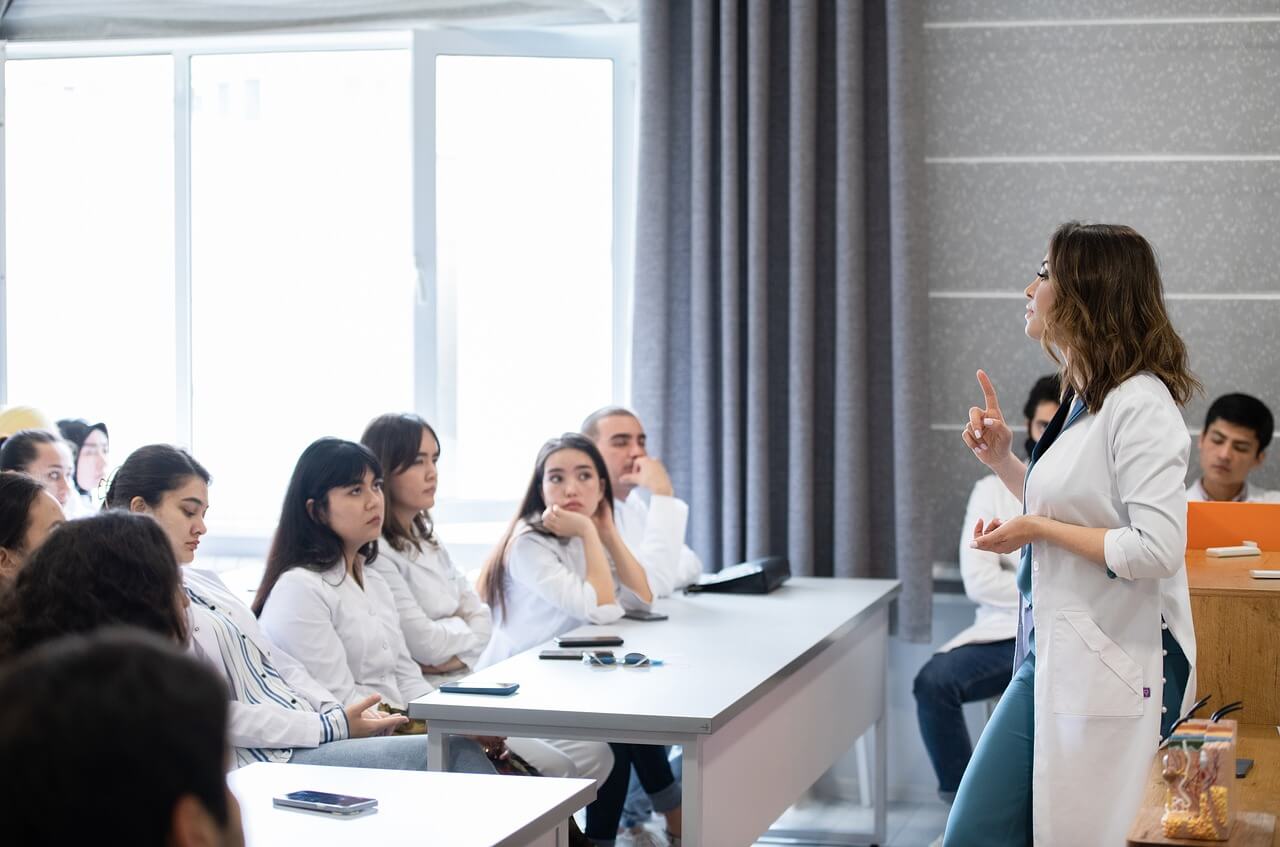腫瘍内科医の「原則」

カナダの腫瘍内科医、Garth Nicholas先生の腫瘍内科医としてのしごとのありかたに関する連続ツイートが非常に印象深かったのでご紹介します。
こちらから続くスレッド、がん薬物療法を実施する人は(少なくとも腫瘍内科を名乗る人は)みんな何度も読んだ方がいいと思う。 https://t.co/O8jp73y1g9
— はなこっぴ🍄 (@hanacoppy) November 6, 2022
以下、可能なかぎり元ツイートのニュアンスを保ったままできるだけ日本語に置き換えたものとあわせて掲載いたします。
はじめに
Over time I’ve tweeted a lot about evidence-based medicine. But oncologists are often in situations with little or no evidence to guide them.
— Garth Nicholas (@Garth_Nicholas1) November 3, 2022
In these situations we go to “first principles”. But what are the first principles? Here’s a thread outlining those I think are key.
長い間、私はエビデンスに基づく医療についてたくさんつぶやいてきました。しかし、腫瘍専門医はがん診療の中でしばしば、判断の根拠となるエビデンスがほとんどない状況に遭遇します。このような状況では、私たちは「最重要な原則」に従います。 しかし、これらの原則とは何でしょうか?私が重要だと思うものをまとめたスレッドを紹介します。
原則1:まず害を及ぼさないこと
Principle #1 – First Do No Harm
— Garth Nicholas (@Garth_Nicholas1) November 3, 2022
This is a classic that has stood the test of time. There are all kinds of asterisks and caveats. But if your proposed course of action has known harms and unknown benefits, then maybe it’s time to stop and think if you’re on the right path.
これは古い時代から大切にされてきた重要な原則です。あなたが提案した治療方針が患者にどのような効果をもたらすかがはっきりしないのに不利益(有害事象・侵襲)がある場合は、おそらくあなたは自分が正しい道を歩んでいるかどうかを一度立ち止まって考えるべきです。
原則2:緩和的治療か根治的治療か
Principle #2– Palliative vs. Curative
— Garth Nicholas (@Garth_Nicholas1) November 3, 2022
It’s essential to to be clear in your head whether you are proposing treatments with palliative or curative intent. All management decisions (toxicity, dose reductions) flow from this, and being unclear leads to muddled decisions.
がん治療では、それが緩和を目的とした治療なのか根治を目的とした治療なのかを明確にすることが重要です。そこが決まれば治療上の判断(どこまで毒性を許容するか、どれくらいの治療強度を保つか)はここから自然と決まります。ここが決まらないままでは、その後の治療判断に迷いが生じることにつながります。
原則3:患者さんに緩和的治療なのか根治的治療なのかを伝える
Principle #3 – Tell your patient whether it’s palliative or curative
— Garth Nicholas (@Garth_Nicholas1) November 3, 2022
Having settled this in your mind, you have to explain it to your patient. Treatment decisions are made in partnership, and your partner can't be ignorant of fundamental facts impacting their decisions and lives
自分の中でその治療目的が決まったら、その治療目的を患者に説明しなければなりません。治療法の決定は医療者と患者のパートナーシップの中で作られるものですから、そのパートナーが自分の判断材料や人生に影響を与える基本的な事実を知らないというわけにはいかないからです。
原則4:アジュバント療法はRCTを必要とする
Principle #4 – Adjuvant therapy requires RCTs
— Garth Nicholas (@Garth_Nicholas1) November 3, 2022
Adjuvant therapy exposes patients who are already cured to toxicity and morbidity. This can't be justified on a case-by-case basis. You only know you're doing more good than harm if there’s an RCT that says so.
No RCT? Don’t do it
アジュバント療法(術後薬物療法)は、すでに治癒している患者を抗腫瘍薬という毒性の侵襲にさらすことになります。(治療効果が直接確認できないため)担当医が科学的根拠なしにケースバイケースでなんとなく決めるべきものではありません。RCTなどの科学的根拠があれば、その治療の侵襲を上回る治療効果の恩恵があるかどうかを確認することができます(したがって、アジュバント治療を行うべきかどうかはRCTの結果に従うべきです)。
RCTがない?もしRCTがないのなら、そのアジュバント療法はやるべきではありません。
原則5:緩和する症状がないのに緩和的治療を行うことには慎重であれ
#5 – Be wary of palliative therapy without symptoms to palliate
— Garth Nicholas (@Garth_Nicholas1) November 3, 2022
Entirely well palliative patients will likely be that way for a short time. Why fill that time with toxicity? If no symptoms, seriously consider observation.
No symptoms & no measurable disease? Observe.
緩和的病期にある患者が良い全身状態で過ごせるのは、おそらくそれほど長い期間ではないでしょう。その貴重な時間を抗がん剤の毒性で浪費してしまうのは本当に良いことなのかを考えて、慎重に判断すべきです。緩和的治療を行うべき病変や症状がない場合は、(むやみに介入せずに)経過観察を真剣に検討したほうがよいこともあるでしょう。
がんによる症状がなく、標的とすべき病変もないのであれば、そのときは静かに様子を見ましょう。
原則6:あなたは自分が思っているほど賢くはない
#6 – You’re not so clever as you think
— Garth Nicholas (@Garth_Nicholas1) November 3, 2022
Molecular tests make us think we understand tumors
Bioplausibility makes us attach tests to treatments
Despite good rationale, most cancer treatments fail
If “thinking outside the box”, consider that you might just be flattering yourself
遺伝子検査の進歩によって、私たちは腫瘍をわかった気になっている。病態生理の機序解明によって、私たちは検査と治療を結びつけてしまう。しかし、これらの十分な根拠があるにもかかわらず、現実にはほとんどの癌治療は失敗する。(すなわち、わたしたちは自分達が思っているほどには賢くはない)
もし自分だけはわかっている、と思うようになってしまっているのなら、それはおごり高ぶっているかもしれないと考えるべきです。
原則7:治療しないということは敗北ではない
Principle #7 – You're not failing if you don’t treat
— Garth Nicholas (@Garth_Nicholas1) November 3, 2022
Your job isn’t to treat people. It’s to help people make good decisions. Reasonable people can choose not to be treated. If all of your patient choose treatment then you’re not explaining it completely.
あなたの最も大切な仕事は、人を治療することではありません。人々が良い決断をするのを助けることのほうが大切です。患者の中には、よく考えた上でがんの積極的治療を受けないという選択をする人もいることでしょう(が、それは決して降伏を意味するわけではありません)。もし、あなたが担当した患者の全員が積極的治療を選択しているのであれば、あなたは患者に十分に合理的な判断を下すための説明ができていないことになります。
Can you think of other fundamental principles of cancer treatment? Principles that transcend disease site and specifics of drug type? I’d love to hear other suggestions!
— Garth Nicholas (@Garth_Nicholas1) November 3, 2022
がん治療の基本原則は他にありますか? 病気の部位や薬剤の種類よりももっと大切な
「原則」がありますか? ぜひ、ご意見をお聞かせください。
他のから提案された「原則」
以下には、他のオンコロジストや患者からも重要な「原則」が提案されていました。
Reassess patient preferences and reaffirm your role to support them often.
— Benjamin Vincent (@BenjaminGVincen) November 3, 2022
What people want before cycle #1 can be different than what they want before cycle #7
患者の希望をくりかえし確認し、その判断を支えるという役割を忘れてはいけません。
患者が、抗がん剤の1サイクル目の開始前に望むことと、7サイクル目のの前に望むことが、同じとは限りません。
This is exactly what I came here to say. Also - re-evaluate those goals as time passes (if you're lucky). My goals when first diagnosed w/stage IV NSCLC (live 2 years to see my youngest graduate, get finances in order for kids) are not the same goals I have now.
— Gia Sonata (@RedGia) November 3, 2022
治療を続けてゆく中で時間が経てばがん治療の目標を見直すこともあります。最初にステージIVの肺癌と診断されたときの患者の目標が、しばらく治療を続けたあとの患者の目標とは違ってきてもおかしくはありません。
1. The tumour should shrink faster than the patient as a result of treatment
— Dan Saunders🏳️🌈💙 (@DanOfChorlton) November 3, 2022
2. Palliation should be: symptom improvement, quality of life improvement, life expectancy improvement - usually in that order
3. Treatment which repeatedly lands you in hospital is not good palliation
治療の結果、腫瘍より患者が先に弱ってしまうようなことがあってはいけません。
緩和的治療では、症状の改善が最優先で、次いで生活の質の向上、余命の延長の順番で考えるべきです。
入院を繰り返すような治療は、良い緩和医療とは言えません。
いずれも、非常に示唆するものばかりです。目先の診療の忙しさや新薬のデータに惑わされることなく、「原則」を大切にして仕事に当たってゆきたいと思います。
この記事に対するコメント
このページには、まだコメントはありません。
更新日:2022-11-07 閲覧数:536 views.